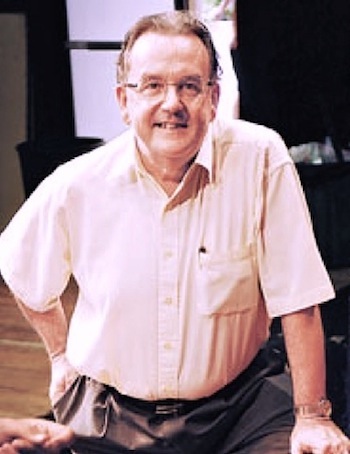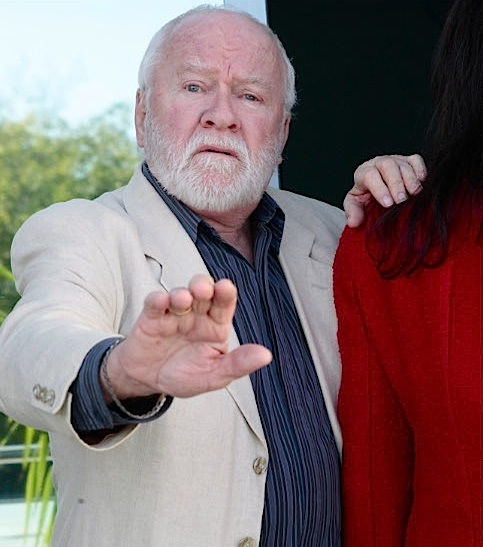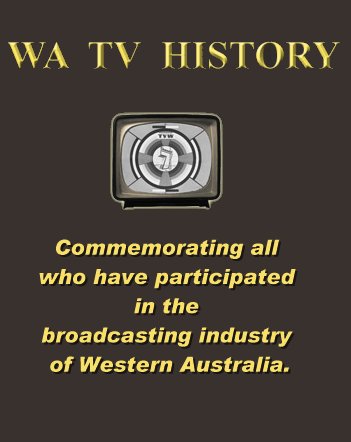Mr Anthony Howes, an award winning director and theatre educationist, has kindly shared his sentiments with us regarding the passing of Edgar Melcalfe, which gives one the opportunity to dwell further on the theatre scene in Perth, from when the Repertory Club evolved into a professional company with the building of the Playhouse Theatre, and the tremendous role Mr Metcalfe played.
Mr Howes is the Artistic Director Emeritus, of The Midnite Theatre Company, and now heads the St George’s Cathedral Drama Unit, which is responsible for productions within St George’s and in other venues. Prior to that he was the Director of Drama and Media at Christ Church Grammar School, after extensive experience in radio, television, theatre and music and had taught English and Drama at Brighton Grammar School in Melbourne and at Guildford Grammar School in Perth.

Anthony Howes
Edgar Metcalfe AM CitWA (1933 – 2012)
‘Pass the parcel.
That’s sometimes all you can do.
Take it, feel it and pass it on.
Not for me, not for you, but for someone, somewhere,
One day.
Pass it on, boys.
That’s the game I wanted you to learn.
Pass it on.’
So says Hector, the teacher, at the close of Alan Bennett’s play ‘The History Boys’. These are the lines Edgar Metcalfe delivered as that character on stage in his beloved Playhouse in October, 2009. As I think of Edgar and his passing, some 24 hours ago as I write these words, those lines bring into vivid relief, that this is just what Edgar has done for us and for our Theatre. From the time he arrived in Perth to take up the artistic directorship of the National Theatre at the Playhouse, until barely six months ago in a minor role at The State Theatre Centre, he has shown us just what ‘good theatre practice’ must be, if it is to resonate with creativity and substance in our community. For those of us who have been directed or acted alongside or, have directed Edgar – he has always taught us so much about the craft that is theatre. And he has done this by first befriending us, then guiding us, and finally, letting us step ‘out from under’. In a totally selfless way; he ‘passed the parcel’. That is why the arts’ editor of ‘The West Australian’, Stephen Bevis is able to speak of Edgar as a ‘Theatre great’. And theatre historian and actor Ivan King can say, “He was a driving force who steered WA Theatre to a professional standing’; and actress and director Jenny McNae can state, “His loss is going to leave such a hole in our lives”.

Edgar Metcalfe
Edgar was born in England in 1933. His Father died before he was born and Mother when he was one. His aunt and Uncle adopted him and his early years were spent on their Lancashire farm. When he was ten the family moved to Blackpool and at eleven he wrote his first play for performance in the local parish church. His professional theatre life was consolidated in the British repertory system, and it was with this grounding behind him, he arrived, at the age of 29, in 1963, to begin his long association with West Australian and Australian, theatre. His work here included artistic directorship of both the Playhouse and the Hole In The Wall theatres, associate directorship of the Melbourne Theatre Company, and directing tasks for various other companies, and a feature film. His acting career in Australia was equally varied, and included the holocaust victim in Elizabeth Backhouse’s “Rosie Fishman” which had its world premiere in St George’s Cathedral, and Jacob in Ibsen’s Ghost at the Playhouse. As an author, Edgar has six plays, three novels, and a Collection of Short stories to his credit.
Yesterday, as I walked down Pier Street, I noticed the wreckers had begun to pull down the Playhouse Theatre; there was a gaping hole near the dock doors and the fly floor was open to the sky. It occurred to me then that the passing of Edgar and the demolition of the Theatre with which he was so intimately associated, was speaking, yes, of the fragility of life, and yet, at the same time, that the legacy of Edgar, and the building he loved, is ongoing – seen, heard and felt both today and tomorrow in the creativity, expertise and inspiration that he lead us to, in abundance. Thank you Edgar for what you have given to your art, your city and state; and to those individuals who, however inadequately by comparison, strive to reflect, in the Theatre you loved.
Anthony Howes.
As published in The Messenger Magazine – October issue, with kind permission.
Related story:







